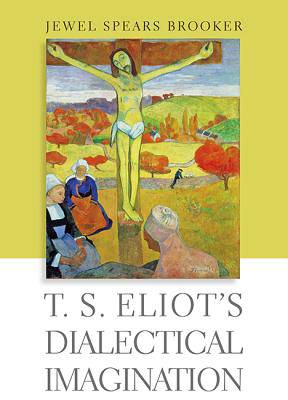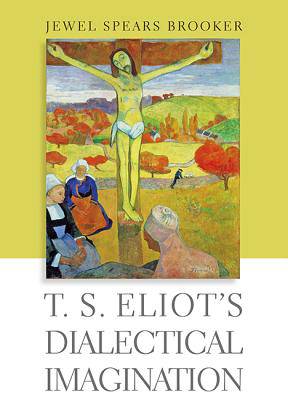
- Retrait gratuit dans votre magasin Club
- 7.000.000 titres dans notre catalogue
- Payer en toute sécurité
- Toujours un magasin près de chez vous
- Retrait gratuit dans votre magasin Club
- 7.000.000 titres dans notre catalogue
- Payer en toute sécurité
- Toujours un magasin près de chez vous
Description
What principles connect--and what distinctions separate--"The Love Song of J. Alfred Prufrock," The Waste Land, and Four Quartets?
The thought-tormented characters in T. S. Eliot's early poetry are paralyzed by the gap between mind and body, thought and action. The need to address this impasse is part of what drew Eliot to philosophy, and the failure of philosophy to appease his disquiet is the reason he gave for abandoning it. In T. S. Eliot's Dialectical Imagination, Jewel Spears Brooker argues that two of the principles that Eliot absorbed as a PhD student at Harvard and Oxford were to become permanent features of his mind, grounding his lifelong quest for wholeness and underpinning most of his subsequent poetry.
The first principle is that contradictions are best understood dialectically, by moving to perspectives that both include and transcend them. The second is that all truths exist in relation to other truths. Together or in tandem, these two principles--dialectic and relativism--constitute the basis of a continual reshaping of Eliot's imagination. The dialectic serves as a kinetic principle, undergirding his impulse to move forward by looping back, and the relativism supports his ingrained ambivalence.
Brooker considers Eliot's poetry in three blocks, each represented by a signature masterpiece: "The Love Song of J. Alfred Prufrock," The Waste Land, and Four Quartets. She correlates these works with stages in the poet's intellectual and spiritual life: disjunction, ambivalence, and transcendence. Using a methodology that is both inductive--moving from texts to theories--and comparative--juxtaposing the evolution of Eliot's mind as reflected in his philosophical prose and the evolution of style as seen in his poetry--Brooker integrates cultural and biographical contexts. The first book to read Eliot's poems alongside all of his prose and letters, T. S. Eliot's Dialectical Imagination will revise received readings of his mind and art, as well as of literary modernism.
Spécifications
Parties prenantes
- Auteur(s) :
- Editeur:
Contenu
- Nombre de pages :
- 240
- Langue:
- Anglais
- Collection :
Caractéristiques
- EAN:
- 9781421426525
- Date de parution :
- 15-11-18
- Format:
- Livre relié
- Format numérique:
- Genaaid
- Dimensions :
- 157 mm x 226 mm
- Poids :
- 453 g







